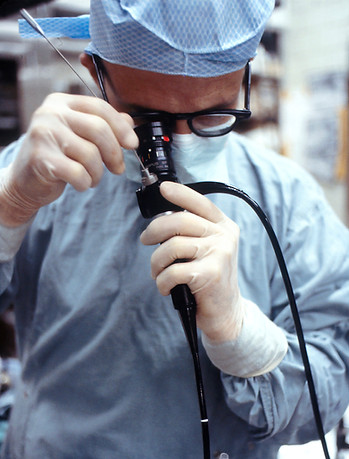+65 6592 0078
DR JAIDEEP RAJ RAO HAS OVER
25 years experience
PERFORMING SURGERY & ENDOSCOPY
WHY CHOOSE US
-
Experienced & internationally trained in Korea
-
Senior Consultant & Head of Upper Gastrointestinal Surgery at Tan Tock Seng Hospital for 10 years
-
Honorary international member of the Korean laparoscopic gastric cancer surgery society.
-
Various treatment options specialising in minimal access surgery and Robotic surgery
COLONOSCOPY TREATMENT
COST ESTIMATE
Or Call Us at +65 6592 0078

ABOUT DR JAIDEEP RAJ RAO
Credentials
-
MBBS
-
MMed (Master of Medicine, National University of Singapore)
-
MRCS (Member of the Royal College of Surgeons, Edinburgh)
-
FRCS (Fellow of the Royal College of Surgeons, Edinburgh)
-
FAMS (Fellow of Academy of Medicine, Singapore)
Dr Jaideep Raj Rao is a senior consultant Surgeon at JR SURGERY in Mount Elizabeth Novena Hospital who specialises in Upper Gastrointestinal Surgery and Gastric, Oesophageal and pancreatic cancer surgery. He was awarded the National Healthcare Human Manpower Development program fellowship by Ministry of Health in 2007 and trained in Seoul National University and Bundang hospital in Korea and specialises in Stomach preservation Surgeries using Minimal Access Techniques such as Laparoscopic and Robot Assisted. He is involved in multiple stomach cancer surgery research both in Korea and Singapore
Is Colonoscopy An Expensive Procedure? Cost Of Colonoscopy
Colorectal Cancer is one of the most common cancers within Singapore and the 3rd most common cancer found worldwide. This makes timely screening in the form of colonoscopy imperative among the general population. Early stages of colon cancer may show no symptoms and evidence suggests that early detection results in a reduction of mortality rate. By the age of 50, it is recommended by Ministry of Health guidelines to begin regular screening for individuals that pose no risk factors. In fact, individuals displaying increased risk should consider screening even before the age of 50, on a case-by-case basis.
To know your eligibility & for hassle-free experience, please WhatsApp us your insurance details.
CASHLESS ELIGIBILITY
HASSLE FREE INSURANCE
SPECIALISED CARE
We are offering Gastroscopy & Colonoscopy screening in Singapore If you are 50 years and above it is recommended to undergo endoscopy screening every 5 years.
Most early stage of stomach cancer have no symptoms, Get a gastroscopy screening to detect cancers at an early curable stage even before you have any symptoms
WHAT IS COLONOSCOPY?
In Singapore, a colonoscopy screening is the most effective way for doctors to evaluate the colon (large intestine). Colonoscopy uses a flexible tube about the thickness of a finger, which contains a camera and a light source at the tip.
This instrument is inserted through the anus. The scope is then advanced through the rectum and the colon slowly, under visual guidance, usually up to the cecum. There is also the possibility of entering and examining the small intestine's last few inches (terminal ileum).

WHAT CAN COLONOSCOPY DETECT?
There are many reasons to perform a colonoscopy. In most cases, colonoscopies are performed in the context of cancer screening programs. The procedure is usually carried out to determine the cause of blood in the stool, pain in the abdomen or the cause of diarrhea, bowel habits change, or to find out how abnormal the colonic x-ray or CT scan is.
The risk of polyps and colon cancer is higher for those with a history of polyps or colon cancer and those with a family history of some types of non-colonic cancers and colonic problems that can resemble colon cancer (such as colonic polyps).

WhO should GO FOR A COLONOscopy?
Colon cancer screening should begin at age 50 for most people once every 5 years and have a family history of colon or rectum cancer or a personal history of colorectal conditions.
It is recommended to go for a colonoscopy if the symptoms below of colorectal cancer are persistent.
-
A change in bowel habits, including diarrhoea or constipation
-
Presence of blood in stools
-
Persistent abdominal discomfort such as cramps, gas or pain
-
Blood in the stool
-
Unexplained weight loss
-
Anaemia

WHAT IS GASTROSCOPY?
Gastroscopy is a procedure where a thin, flexible tube called an endoscope is used to look inside the oesophagus (gullet), stomach, and first part of the small intestine (duodenum). It’s also sometimes referred to as an upper gastrointestinal endoscopy.
The endoscope has a light and a camera at one end. The camera sends images of the inside of your oesophagus, stomach, and duodenum to a monitor.

What does a gastroscopy check foR?
-
Investigate problems such as difficulty swallowing (dysphagia) or persistent abdominal (tummy) pain
-
Diagnose conditions such as stomach ulcers or gastro-oesophageal reflux disease (GORD)
-
Treat conditions such as bleeding ulcers, a blockage in the oesophagus, non-cancerous growths (polyps), or small cancerous tumours
A gastroscopy used to check symptoms or confirm a diagnosis is known as a diagnostic gastroscopy. A gastroscopy used to treat a condition is known as a therapeutic gastroscopy.
In Singapore, Gastroscopy services recommended for those who have frequently ached into the stomach & small intestine and they have a complete range of equipment and advance treatment for Gastroscopy.
When should I get a gastroscopy?
Gastric Cancer Screening:
-
50 years and above
-
Family history of stomach cancer
-
History of H Pylori infection
-
previous stomach surgery
-
Smoker
In the early stages of stomach cancer, there may be no symptoms at all. You should consider getting yourself examined if you have the following symptoms and especially if they are persistent.
-
Indigestion and stomach discomfort
-
A bloated feeling after eating
-
Mild nausea
-
Loss of appetite
In more advanced stages of stomach cancer, the following signs and symptoms may occur:
-
Blood in the stool
-
Vomiting
-
Weight loss for no known reason
-
Stomach pain
-
Jaundice (yellowing of eyes and skin)
-
Ascites (build-up of fluid in the abdomen)
-
Trouble swallowing

Mount Elizabeth Novena Hospital, #08-32, 38 Irrawaddy Road, Singapore 329563

